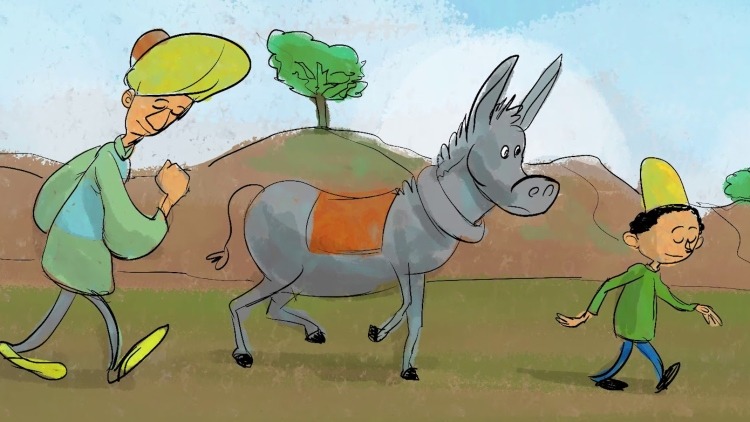Heroic figures like Sinbad and Ali Baba who battle it out and undertake daring quests and adventures are the kinds of characters that have been imprinted onto the pages of our favorite Arab storybooks. But among these popular tales are ones of relatable and down-to-earth characters who make hilarious mistakes and along the way teach rich life lessons to their readers. That is exactly what the folkloric character of Goha represents, he is a trickster, a fool and a wise man all at once.
When it comes to the stories, Goha would always be placed in hilarious yet socially confusing situations leaving readers unclear as to whether he is in fact foolish or witty. In every story, there would be Goha accompanied by his donkey travelling somewhere where he’d be met with unusual circumstances. Lets take a look at some of the classic stories that we know and love.
Goha and His 10 Donkeys
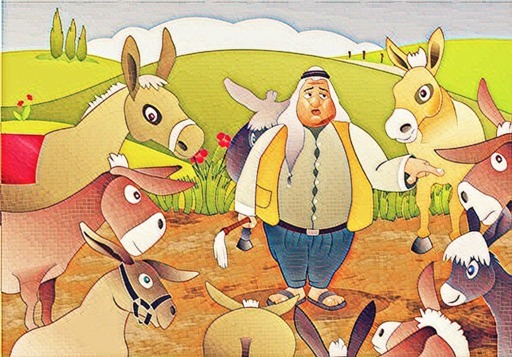
This is a great example of Goha’s typical tendency towards hilarious mistakes. In the story, Goha rides atop one of 10 donkeys and has the other nine travel in front of him. While travelling, each time he’d count the donkeys and think them only nine but each time he’d get off the donkey, he’d realize they are in fact ten. So Goha being his typical self decides the solution was to hop off the donkey and continue his journey on foot to ensure they are 10 donkeys in total. It’s all about perspective.
Goha, His Donkey and His Son
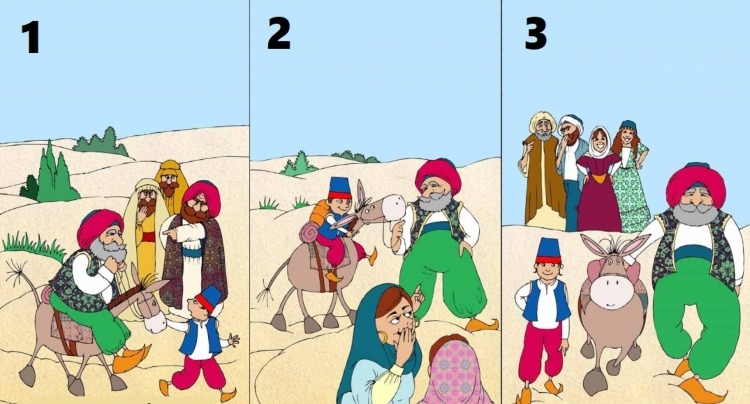
This was one of his more serious stories that recalled the journey Goha and his son had while travelling to a nearby town. In each town they would stop along the way, they’d face disapproval from the townspeople for different reasons. In the first town, it was because Goha and his son were both riding the donkey so were too heavy for the animal, in the second, it was that Goha was riding the donkey while his poor son had to walk the journey and the third town it was the opposite scenario that triggered the town. So out of sheer frustration, at the fourth town, Goha and his son ended up both carrying the donkey on their heads. The tale is to say, you can never please everyone.
Goha’s Nail
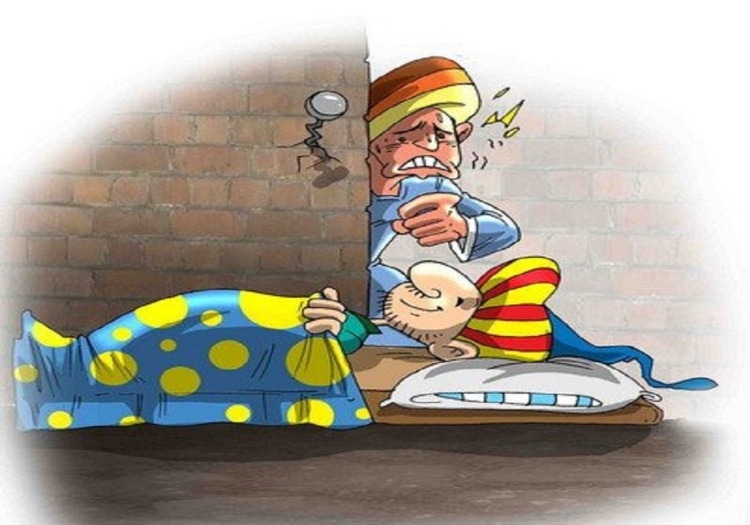
The story is simple, Goha once sold his house to a buyer but made sure to leave a nail inside the house for a very mischievous reason. Days later, sneaky Goha kept passing by the house sometimes to even sleep over and when asked why he kept coming over, Goha said “to check on my nail” and so used the nail as an excuse to keep crashing at the buyer’s house until the man lost his patience and moved out. Today people would say “Goha’s Nail” as a proverb to describe anyone who behaves similarly to Goha in that story.
Wednak Fein Ya Goha (Where Is Your Ear Goha?)
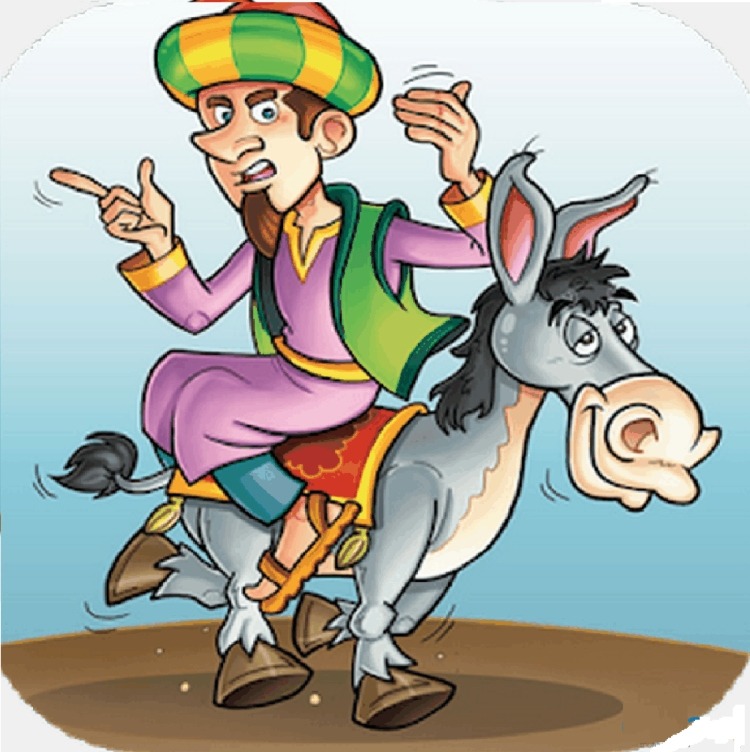
We all know the famous saying “Wedanak fein ya Goha” but did you ever think of where the story came from? Let’s take a look at its origin. One day, Goha was going about his day until someone came to him and asked him where’s his ear and in response, using his right hand, he stretched it across his head to point at his left ear. It’s clear that the right ear was a way easier choice but Goha chose to go about it the hard way because of misregistering which one is closer.
Goha’s Donkey and The Pepper
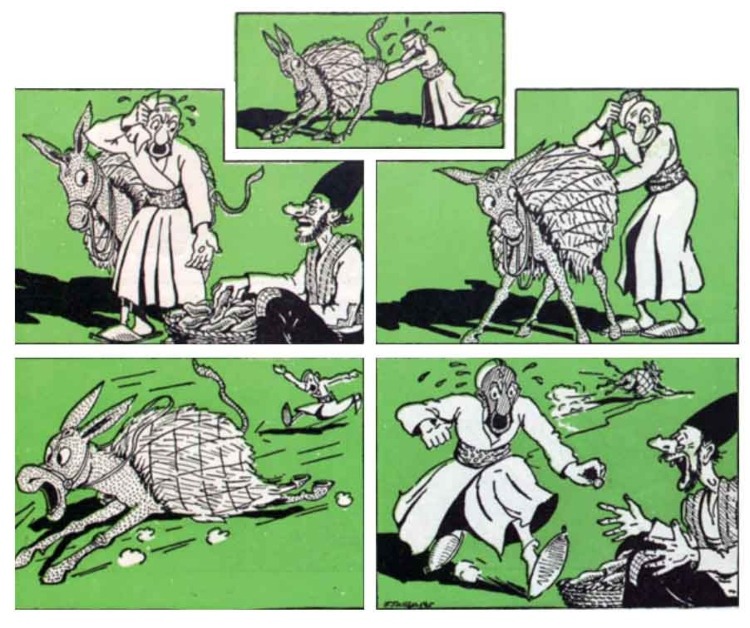
Time for another funny one and this one has quite the added spice to it. In one story, Goha decided to attempt to go for a creative solution when it came to getting his lazy donkey to run faster. So, he went to buy some peppers and placed one under the donkey’s tail only to find the animal running so fast that he couldn’t catch up to it. His solution was to buy a pepper for himself to be able to catch up to his speeding donkey.
All these stories showcase the vulnerability, immaturity and fragility of the human experience and how we are prone to make mistakes and even repeat them. To this day, Goha’s tales act as an ever-present form of life lessons packaged into the simple innocence of a children’s story. From time to time, it’s great to read through them, have a laugh while also remembering what it means to be a human being.


